Coronavirus travel update: Which countries are open and which are closed?
With travel being disrupted almost constantly by COVID-19 (aka coronavirus), we’ll be updating this article daily to share which borders are closed, and where in the world is still open to travellers…
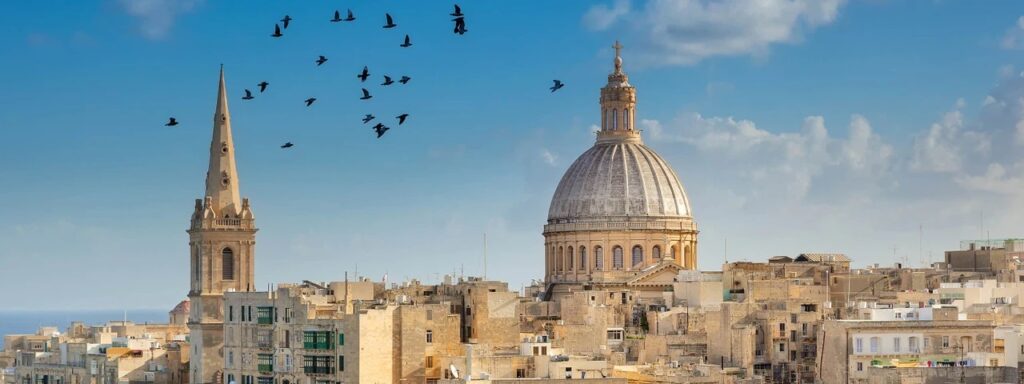
Please note: The information in this article applies to UK travellers, and is correct as of 9.00am on 25 July. Check back here tomorrow morning for the latest update.
The FCO has updated its global advisory against ‘all but essential’ travel, exempting destinations that no longer pose an unacceptably high risk for British travellers. The full list can be found here.
The UK government has confirmed that from 10 July, people arriving in England will not have to quarantine when returning from several countries including Spain, France, Germany and Italy. The full list can be found here. There are currently two separate lists for England and Scotland.
What’s changed since yesterday?
Georgia postpones the opening of its borders until at least 1 September
5 countries were added to England’s quarantine exemption list yesterday: Travellers from Latvia, Estonia, Slovenia, Slovakia and St Vincent and the Grenadines will not have to quarantine on arrival in England.
From 24 July, the following countries are exempt from the FCO advice against all non-essential international travel: Cuba, Laos, Sri Lanka, Cambodia, St Helena Ascension and Tristan da Cunha, the Cook Islands, Fiji, St Barthélemy, and Guadeloupe
Cyprus has extended its travel ban on British tourists
Ireland changes its 14-day quarantine to a 14-day restriction of movement, meaning new arrivals will have to stay at home and avoid contact with other people as much as possible.
Djibouti has reopened all of its borders
Kenya is lifting its flight suspension on 1 August.
Europe | North America | Central and South America | Asia | Africa |
South Pacific | The Caribbean
Europe
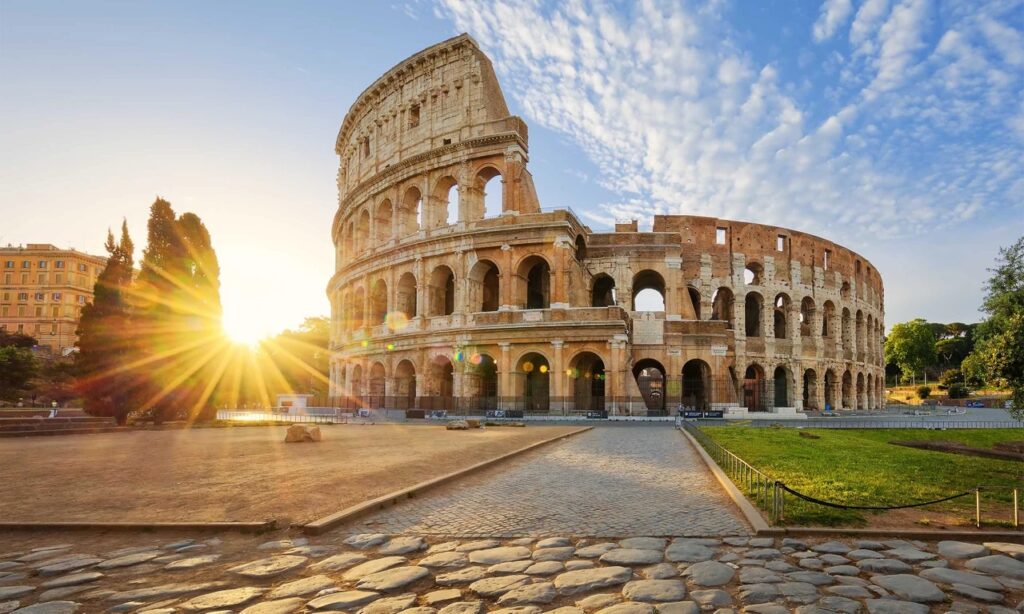
Which European countries have travel restrictions?
Armenia: The majority of foreign nationals who have travelled from or via countries with outbreaks of COVID-19 within 14 days of travel, including the UK, are not currently allowed to enter Armenia.
Finland: Travel restrictions remain in place for UK travelers. British residents should display an ID card or other proof of residence when arriving in Finland. Non-resident British nationals are permitted to enter Finland for limited essential or compassionate reasons with evidence for their travel. Finland is on the UK government’s quarantine exemption list.
Georgia: UKtravellers are currently banned from travelling to Georgia. The Georgian government has announced it will no longer open its border on 1 July and is postponing the opening until at least 1 September.
Moldova: Foreigners who do not hold Moldovan residency are currently not permitted to enter Moldova.
Romania: Direct flights between Romania and the UK have been suspended.
Which European countries are open to UK visitors?
Albania: All land borders apart from the border with Montenegro which remains closed.
Andorra: Andorra is on the UK Government’s quarantine exemption list, meaning those living in England will not need to quarantine on return from Andorra.
Azerbaijan: Travel to the country is very limited. Hand luggage will not be allowed on incoming flights apart from small bags such as handbags, briefcases etc. All passengers travelling to or from Azerbaijan will require a negative COVID-19 test. The test itself can be taken more than 48 hours before your flight but the certificate showing the negative test result will only be accepted if issued within 48 hours before the flight. Those who have a negative test will not have to self-isolate.
Austria: Anyone entering Austria who has been in an area for which the Austrian Foreign Ministry has travel warnings in place due to COVID-19 (including the UK), must present a medical certificate with micro-biological test results in English, French, German or Italian which is no older than four days. Austria is on the UK Government’s quarantine exemption list.
Azores: Before travelling to the Azores you will need to complete this form 72 hours before you travel. You will then be given a QR code which you will need to show to health authorities on arrival. You will also need proof of a negative test no older than 72 hours. You will also need to take a test on arrival and self-isolate until you get the results. If you are staying longer than a week, tou will need to have another test siz days after your first.
Belarus: Belarus is open to UK tourists. Those arriving from the UK with a medical certificate showing a negative coronavirus test result, issued no later than 48 hours before entry, will not need to self-isolate.
Belgium: Belgium has reopened its borders for travel to and from the European Union, including the United Kingdom. UK travellers will need to fill in a a Passenger Locator Form. However travellers entering Belgium from high risk regions in these countries will be required to self-isolate for 14 days. These regions are listed here. This means travellers from Leicester are not currently allowed to enter Belgium. It is recommended that travellers entering Belgium from ‘orange’ regions take a test and self-isolate for 14 days. The Midlands, North East England, Yorkshire, North West England and Northern Ireland are currently in the ‘orange’ category. Belgium is on the UK government’s quarantine exemption list.
Bosnia and Herzegovina: British Nationals can enter Bosnia and Herzegovina if they have a negative COVID-19 (PCR) test result that is not older than 48 hours.
Bulgaria: Bulgaria has lifted its travel ban on UK travellers. As of 16 July, you will no longer have to self-isolate for 14 days on arrival. Travellers who arrived between 2 and 15 July from the UK are also permitted to stop self-isolating from this date.
Croatia: Croatia is open to visitors, including those from the UK. You will not have to self-isolate at the border. UK travellers just need to fill in this form to announce their visit and to help speed up processes at the airport. Croatia is on the UK government’s quarantine exemption list.
Cyprus: Tourists from some countries are allowed to enter but the UK is still not included on this list. Cyprus is on the UK government’s quarantine exemption list.
Czech Republic: Arrivals to the Czech Republic from ‘green’ countries do not require quarantine. Click here for the full list which is updated regularly. Travel restrictions for UK citizens have been lifted. The Czech Republic is on the UK government’s quarantine exemption list.
Denmark: Denmark has classified all countries as open or restricted. A country’s status can change dependent on its infection rate for COVID-19. Currently, Denmark is open to UK travellers. .The status is updated weekly on Thursdays. You can check whether the UK is ‘open’ or ‘restricted’ on the Danish government’s Coronavirus website. Denmark is on the UK government’s quarantine exemption list.
Estonia: From 1 June, travellers without symptoms arriving from an EU Member State, Schengen Convention state or from the UK will again be allowed to enter the country. Estonia has lifted its quarantine for UK travellers. Estonia is exempt from the FCO advice against all non-essential travel.
France: UK travellers will no longer have to self-isolate on arrival to France. France is on the UK government’s quarantine exemption list. If you are flying into Paris Charles de Gaulle and Paris Orly airports from any country from which you are required to present an international travel certificate, from 18 July you will be invited to provide a negative Covid19 RT-PCR test taken less than 72 hours before departure. Those unable to take this test before departure will be offered a free RT-PCR test on arrival.
Germany: Germany has lifted all travel restrictions for UK travellers. Germany is on the UK government’s quarantine exemption list.
Greece: Greece has restarted direct flights to and from the UK and is now open to UK visitors. You need to complete this form 24 hours before you arrive in Greece. On arrival you may be given a COVID-19 test. You will have to self-isolate until your test results come back. Any passenger entering Greece may be asked to undergo a test, but you are more likely to be asked if you have arrived from a country outside of the EU (including the UK). Greece is on the UK government’s quarantine exemption list.
Hungary: Hungary has classed the UK as an amber country. This means UK travellers will have to have a medical examination for COVID-19 on arrival. If you have proof of a valid permanent residence permit or any permit allowing you to stay in Hungary for over 90 days, you will be treated the same as Hungarian Nationals. This means you can avoid 14-day quarantine if you have proof of two negative tests with 48 hours time difference between the two no older than 5 days before your visit. If you show symptoms on arrival, you’ll go into government quarantine. UK nationals without a residency permit will also undergo medical checks but will be denied entry if they show symptoms at the border. Hungary is on the UK government’s quarantine exemption list.
Iceland: Iceland is now open to tourists. All passengers can choose to be tested for COVID-19 or choose to self-isolate for 14 days. Tests around £50 per test if booked in advance. You will need to fill out a pre-registration form before departure. Children born in 2005 or later will be exempt from isolation and testing. Iceland is on the UK government’s quarantine exemption list.
Ireland: Flights and ferry services continue to operate between Ireland and Great Britain but at a reduced service. New visitors will have to restrict their movement for 14 days, which means staying at home and avoiding contact with other people as much as possible. Ireland is exempt from the FCO advice against all non-essential international travel.
Italy: Italy is open to tourists and there is no quarantine for British travellers. Italy is on the UK government’s quarantine exemption list.
Jersey: Jersey’s borders are now open. Prior to travelling, visitors must complete this form for contact tracing purposes.
Latvia: Flights between Latvia and the UK have now resumed. You will need to complete a contact form on arrival. UK travellers don’t currently have to self-isolate on arrival but we advise you to check this list incase this change.
Liechtenstein: UK travellers can enter Liechtenstein. People travelling from the UK to Liechtenstein will not have to self-isolate on arrival. Liechtenstein is on the UK government’s quarantine exemption list.
Lithuania: British nationals resident in the UK may travel to Lithuania without needing to self-isolate. Lithuania is on the UK government’s quarantine exemption list.
Luxembourg: Luxembourg’s borders are open. Luxembourg is on the UK government’s quarantine exemption list.
Madeira: If you are travelling to Madeira you will need to complete this form 48 before you arrive. You will also need to upload proof of a negative test taken 72 hours before departure. Madeira is exempt from the FCO advice against all non-essential international travel.
Malta: Malta is now open to UK travellers. Before you arrive, you need to complete a paper copy of a public health form and a passenger locator form which are available here. UK travellers are exempt from the self-isolation measures. Malta is on the UK government’s quarantine exemption list.
Netherlands: UK travellers are no longer advised by the Dutch travellers to self-isolate on arrival. The Netherlands is on the UK government’s quarantine exemption list.
Norway: UK travellers are allowed to Norway and will not have to self-isolate on arrival. Norway is on the UK government’s quarantine exemption list.
Montenegro: UK travellers can go to Montenegro and will not need a test prior to arriving and will not need to self-isolate.
Poland: You are not required to self-isolate on arrival in Poland if you are coming from the UK or European Union. Poland is on the UK government’s quarantine exemption list.
Portugal: If travelling to Portugal, you will have a health screening on arrival, have your temperature checked and if it is high or you are showing symptoms, you will be referred to health authorities. You may also need to take a COVID-19 test and self-isolate at your accommodation until the results are known. Portugal is NOT on the UK government’s quarantine exemption list, meaning if you go to Portugal you will have to quarantine on your return.
Russia: On 15 July, Russia began relaxing some of its restrictions on international flights. Make sure you check with your airline that your flight is running. On arrival, you will need to show a medical certificate confirming you have tested negative for COVID-19 less than three days old and you will also need a certificate to confirm you have tested positive for the presence of COVID-19 IgG antibodies. Those who develop symptoms during their stay or those who test positive will have to self-isolate until they have recovered. Temperatures are being check at the airport.
San Marino: There are no COVID-19 related restrictions on entry into San Marino. San Marino is on the UK government’s quarantine exemption list.
Serbia: Commercial flights between London and Belgrade have resumed. Border crossings have now opened. There are no entry restrictions or quarantine requirements for UK travellers arriving in Serbia. The FCO now advise against all but essential travel to Serbia, based on the current assessment of COVID-19 risks. Serbia is no longer exempt from the FCO advice against all non-essential international travel.
Slovenia: Airports in Slovenia have now re-opened for passenger transportation. Health checks are being conducted at all border entry points. British visitors who display signs of coronavirus infections will be refused entry. UK nationals are no longer required to self-isolate in Slovenia. Slovenia is on the UK government’s quarantine exemption list.
Slovakia: UK travellers can now enter Slovakia without having to quarantine on arrival. Slovakia is exempt from the FCO advice against all non-essential international travel. Slovakia is on the UK government’s quarantine exemption list.
Spain: Spain has reopened to European travellers and UK tourists will not need to self-isolate on arrival. Those entering Spain will beed to provide contact information and any history of exposure to COVID-19, have a temperature check, and undergo a visual health assessment. You will need to fill out this form before travelling. Spain is on the UK government’s quarantine exemption list. Be aware that there are reports of substantial increases of COVID-19 in Aragon and Catalonia.
Sweden: Sweden’s borders are currently open to UK nationals only. There are limited flights operating between London and Stockholm.
Switzerland: Entry to Switzerland from the UK is permitted for British nationals of EU and EFTA countries. Family member from that country are also allowed to enter, regardless of nationality. Switzerland is on the UK government’s quarantine exemption list.
Turkey: Turkey has begun reopening its international air borders. Flights between the UK and Turkey have resumed. All passengers who meet Turkish immigration rules are allowed to enter Turkey. Be aware that passengers need to wear a face mask at all times on the flight and in the airport. Before flying, passengers will need to complete a passenger locator form. Any passenger who shows symptoms of coronavirus will need to take a test. Turkey is on the UK government’s quarantine exemption list.
Ukraine: Ukraine has reopened its borders to foreign nationals. All foreign nationals will need proof of health insurance on arrival. Currently, the UK has been put on the Ukraine’s Red Zone list, meaning travellers from the UK will have to self-isolate for 14 days upon arrival.
North America
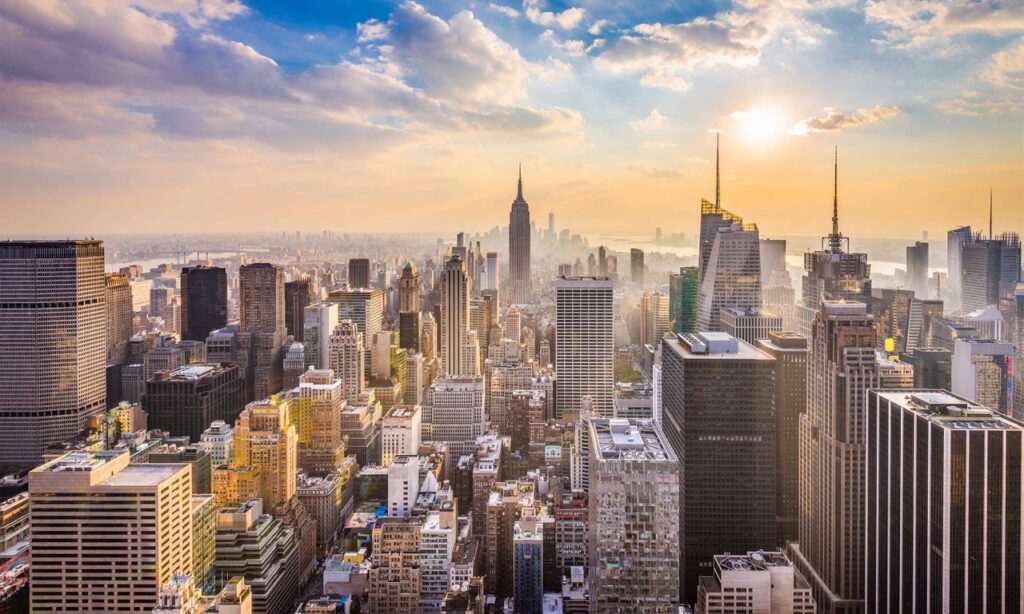
Which North American places have travel restrictions?
USA: Travellers who have been to the UK, Ireland, Schenegen Zone, Iran, Brazil or China within the last 14 days will be denied entry to the USA. US citizens and permanent residents of the USA, certain specified close family members and certain other limited categories of visas holders (such as UN staff and diplomats) are exempt. They will still be able to enter the USA, subject to normal entry requirements.
Canada: Canada has now closed its borders to most foreign visitors, including those coming from the UK. The border between the US and Canada has now also closed for all but essential journeys. Canada is exempt from the FCO advice against all non-essential international travel.
Which North American countries are open to visitors?
Mexico: There are extra measures in place due to coronavirus, but at the moment you can still gain access to the country. Be aware that this could change with little warning, and that some airlines are imposing their own additional restrictions on travelers, different from the Mexican government guidelines. On 20 April, the Mexican government confirmed that the land border between the US and Mexico will remain closed to all non-essential traffic until at least 21 July. Be aware that hotels will no longer receive reservations and only some hotels will be authorized to offer limited accommodation to foreign nationals for humanitarian reasons.
Jamaica: Passengers must have a travel authorization obtained before departure at https://www.visitjamaica.com/ .
– This does not apply to residents of Jamaica.
– Residents of Jamaica must have a travel authorization obtained before departure at https://jamcovid19.moh.gov.jm/immigration.html .
– Passengers are subject to medical screening and quarantine.
Central and South America
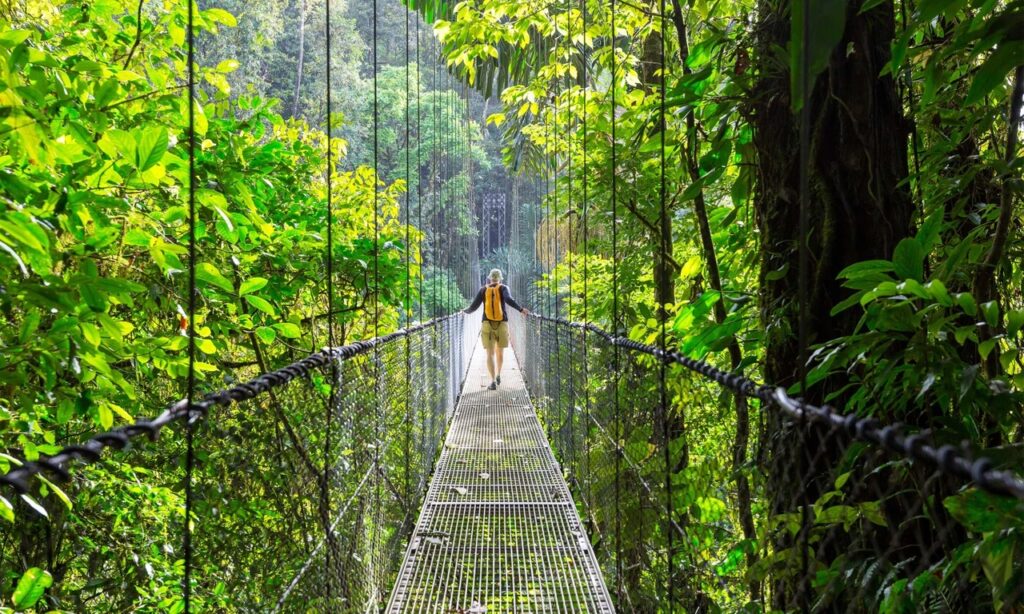
Which Central and South America Countries have travel restrictions?
Argentina: Argentina’s borders are closed to foreign nationals and non-residents entering the country.
Belize: The government of Belize closed all borders including suspending all international flights to the Philip Goldson International Airport.
Bolivia: All international flights to and from Bolivia are suspended and all land border crossings closed.
Brazil: The Brazilian Government have banned entry for all foreign passengers.
Chile: The Chilean government has decided to close its borders from Wednesday 18 March onward. This means that those who do not have Chilean residence will be prohibited from entering Chile by air, sea or land. Disembarking from a cruise on the Chilean coasts is also prohibited. Our thanks to Southbound for this information.
Colombia: Colombia’s land and sea borders are now closed, including the border with Ecuador. With effect from 23 March, airports are closed to international traffic .
Costa Rica: All commercial airlines have now ceased operating to/from Costa Rica until further notice.
Cuba: All commercial and charter flights are suspended from entering or leaving Cuba until 31 July 2020. From 24 July, Cuba is exempt from the FCO advice against all non-essential international travel.
El Salvador: All foreign visitors are banned from entering the country.
Guatemala: All international and domestic flights are banned. Land, air and sea borders are closed.
Guyana: Guyana’s government has cancelled all international flights from the Cheddi Jagan International Airport at Timehri and the Eugene Correia Airport at Ogle.
Honduras: All land, air and maritime borders are now closed for the transit of people.
Panama: Borders are closed to all visitors except citizens and residents who will need to self-isolate for 14 days on arrival. There are currently no international flights to or from Panama.
Paraguay: All passenger flights have been suspended and borders will remain closed to travellers until further notice.
Peru: All borders are now closed.
Suriname: Suriname has closed its borders.
Uruguay: Only Uruguayan nationals and legal residents are allowed to enter Uruguay.
Venezuela: A large number of commercial flight routes to/from Venezuela (and internally) have been suspended due to travel and border restrictions.
Which South American countries are open to visitors?
Ecuador: International flights to and from Ecuador have resumed. The restriction on international arrivals has been lifted. Upon arrival, passengers will be required to sign a declaration form with their itinerary and local contact details. They must also present a negative Polymerase Chain Reaction (PCR) test for COVID-19, taken up to seven days prior to departure. If those tests aren’t available in your country, you need to agree to have a test at the airport in Ecuador. All passengers will have to self-isolate for 14 days.
Asia

Which Asian countries have travel restrictions?
Bahrain: Foreign visitors will not be allowed to enter Bahrain.
Brunei: Entry to Brunei is severely restricted. All foreign visitors will have to pay $1,000 BND for a coronavirus test and need to be able to cover the cost of a stay in a quarantine facility. You will also be encouraged to downloads the BruHealth app. Brunei is exempt from the FCO advice against all non-essential international travel. Be aware that Brunei is enforcing an exit travel ban.
China: China has suspended entry to foreign nationals with visas issued before 27 March. Entry by foreign nationals with visas issued after 28 March 2020 will not be affected.
– Passengers are subject to medical screening and quarantine for 14 days. A small number of international flights are also operating direct between European cities and Shanghai, Guangzhou and Qingdao.
Hong Kong: Travellers arriving in Hong Kong on flights from overseas countries/territories, who are not Hong Kong residents or the spouse or children of residents will be denied entry to Hong Kong. Hong Kong is on the UK government’s quarantine exemption list.
India: All incoming international passengers returning to India should self-monitor their health and follow required do’s and don’ts as detailed by the Government.
International traffic through land borders will be restricted to designated check posts with robust screening facilities.
All international passengers entering into India are required to furnish duly filled self-declaration form in duplicate (including personal particulars i.e. phone no. and address in India) (as annexed) to Health Officials and Immigration officials and undergo Universal Health Screening at the designated health counters at all Points of Entry.
Passengers arriving in India:
– are subject to medical screening and quarantine for 14 days; and
– must install “Arogya Setu” in their personal device; and
– must present a completed Self-declaration form.
Indonesia: All foreign nationals are barred from entering and transiting through Indonesia. Exceptions have been made for essential travellers, who will need to have a valid health certificate before being allowed to enter.
Israel: Foreign nationals are not permitted to enter unless they are citizens or residents of Israel.
Japan: Foreign visitors who have visited the UK or other affected countries will not be allowed to enter Japan, other than in exceptional circumstances. Japan is on the UK Government’s quarantine exemption list.
Jordan: Commercial flights in and out of Jordan are suspended and all land and sea borders are closed.
Kazakhstan: Most foreign nationals, including those from the UK, are currently prevented from travelling to Kazakhstan.
Kyrgyzstan: Most foreign nationals are banned from entering the country, including permanent residence holders. Foreign nationals with a close family member who is a Kyrgz national (spouse, parent, child) will be allowed to enter with documentary proof of the relationship.
Kuwait: The Kuwait government is no longer allowing non-Kuwaitis to enter Kuwait, unless they have close Kuwait family members.
Laos: No visas are being issued to people travelling from a country with cases of COVID-19, including the UK. From 24 July, Laos is exempt from the FCO advice against all non-essential international travel.
Malaysia: Entry to Malaysia is prohibited until 31 August 2020, except for Malaysian nationals and foreign nationals holding certain categories of residency and employment passes. Passengers arriving in Malaysia:
– are subject to medical screening; and are subject to quarantine at government monitored facilities for 14 days, at their own expense; and must install ‘MySejahtera app’ in their smart phone. Malaysia is exempt from the FCO advice against all non-essential international travel.
The Maldives: The Maldives has reopened its borders and lifted its ban for anyone who has left or transited through the UK in the last 14 days. You will need to fill in this form 24 hours before you travel. Temperatures will be checked on arrival and suspected positive cases will have to pay for a test. Tourists will not have to self-isolate. All visitors are encouraged to download the ‘Trace Ekee’ app.
Mongolia: All international flights and rail are suspended until at least 31 July.
Myanmar (Burma): All commercial flights are suspended until at least 31 July.
Nepal: Flights to Nepal are suspended until 16 August 2020.
– This does not apply to medical and repatriation flights.
– Passengers are subject to self-quarantine for 14 days.
– A completed “Passengers Locator Card” must be presented to the “health desk” upon arrival.
The Government of Nepal has announced its intention to lift the suspension of international commercial flights on 16 August but we do not yet know if this means British nationals will be allowed to enter.
Oman: Only Omani nationals are able to enter the country and international flights have now stopped.
Philippines: British nationals will no longer be able to receive a visa on arrival and will not be able to enter the Philippines until further notice.
Qatar: Residents who want to return to Oman from the UK need to contact Oman Air’s UK office on +442038297442. A 14-day isolation at a government facility is in place for those showing symptoms. Those without symptoms need to self-isolate for 14 days.
Saudi Arabia: Entry to Saudi Arabia on a tourist visa from significantly affected countries has been temporarily suspended.
Pakistan: Entry to Pakistan on a tourist visa is open but Flights to Gwadar (GWD) and Turbat (TUK) are suspended. Before arriving in Pakistan all international travelers are required to download the PakPass app to register online, and fill in the Passenger Health Declaration form to hand it over to the Health Department Staff at the airport. Passengers are subject to medical screening and quarantine for 14 days.
Singapore: People who need to visit in extenuating circumstances need to submit a Form 14. If you’re given permission to enter Singapore, you will be issued with a 14-day Stay at Home Notice (SHN) and must pay $2,000 to carry out the quarantine at a government designated hotel.
Sri Lanka: The government of Sri Lanka are not allowing UK travellers into the country and flights to Sri Lanka have been suspended. However, Sri Lanka will be reopening its borders on 1 August to tourists from all countries. From 24 July, Sri Lanka is exempt from the FCO advice against all non-essential international travel.
Tajikistan: The government of Tajikistan has imposed temporary restrictions on the entry of all foreign nationals through all checkpoints into Tajikistan.
Thailand: All foreign nationals are barred from entering Thailand and international passenger flights to Thailand are suspended.
Turkmenistan: All international scheduled commercial flights to and from Turkmenistan have been suspended.
Vietnam: Foreign tourists are currently banned from entering the country. Vietnam is on the UK government’s quarantine exemption list.
Which Asian countries are open to visitors?
Bangladesh: On arrival in Bangladesh, all foreign nationals are required to produce a medical certificate issued within 72 hours of travel indicating the passenger is COVID-19 negative.
You will need to self-isolate for 14 days on arrival if travelling from a coronavirus affected country, including the UK.
Health officials at the point of entry to Bangladesh will assess whether passengers are able to self-quarantine or need to be taken to a government facility. If you’re returning to the UK, you will need to: provide your journey and contact details & self-isolate for 14 days
Cambodia: Travellers from all countries can now enter Cambodia, but must have a certificate to prove they are COVID-19 free, have proof of insurance that includes a minimum of US$50,000 for medical cover and have a visa before arrival. Cambodia have introduced a $3000 deposit for the COVID-19 service. Fees will be deducted for the test, an overnight stay in a waiting centre, meals at the waiting centre. and the remainder will be paid back. If one passenger tests positive, everyone who was on the same flight as them will be quarantined for 14 days. From 24 July, Cambodia is exempt from the FCO advice against all non-essential international travel.
Iran: Although you can technically still travel to Iran, some airlines are no longer flying in and out of Iran and many neighbouring countries have closed their borders or started monitoring travellers from Iran. There may be further measures introduced at short notice.
Lebanon: All passengers travelling to Lebanon must fill this health declaration form online. You will also need proof of an insurance policy that covers all costs of treatment for coronavirus in Lebanon. There’s an option to buy a policy at the airport. Testing is in place at the airport. You will need to take PCR two tests, one before arriving and one on arrival and self- isolate until you get the result. If you test positive, you meed to quarantine ant designated centres.
South Korea: All foreign national travellers are being tested for COVID-19 on arrival in South Korea. Testing may take up to 24 hours and you may be held in a separate facility during this time. If you test positive for the virus you will be transferred to the appropriate healthcare facility. South Korea is on the UK government’s quarantine exemption list.
Taiwan: Foreign nationals will be permitted to enter Taiwan provided they are not entering for study, tourism or to visit friends. You will need to apply for a visa before travelling. Foreign nationals entering Taiwan must provide a negative COVID-19 test report completed three days prior to boarding.You need to apply for a visa before before travelling to Taiwan. Taiwan is on the UK government’s quarantine exemption list.
UAE: British Nationals will now be able to return to the UAE if they meet the criteria set by the UAE authorities. You will have to fill in this form, and if approved you will be given a reference number which will allow you to book a flight. Be aware that strict measures are still in place at the border. You may have a mandatory health check on arrive and have to go into mandatory quarantine for 14 days. All international tourists are allowed to enter Dubai from 7 July. Those travellling to Dubai will need a negative COVID-19 test certificate no older than 4 days, and will be tested on arrival.
Uzbekistan: It is possible to enter Uzbekistan for business visits. Uzbekistan is expected to be open to UK tourists soon. At the moment, those from the UK will have to go into 14-day quarantine. Uzbekistan has introduced a $3,000 COVID-free guarantee. This means that those who travel to Uzbekistan with a local tour operator or on a small tour will be compensated $3,000 in the unlikely case that get COVID-19.
Africa
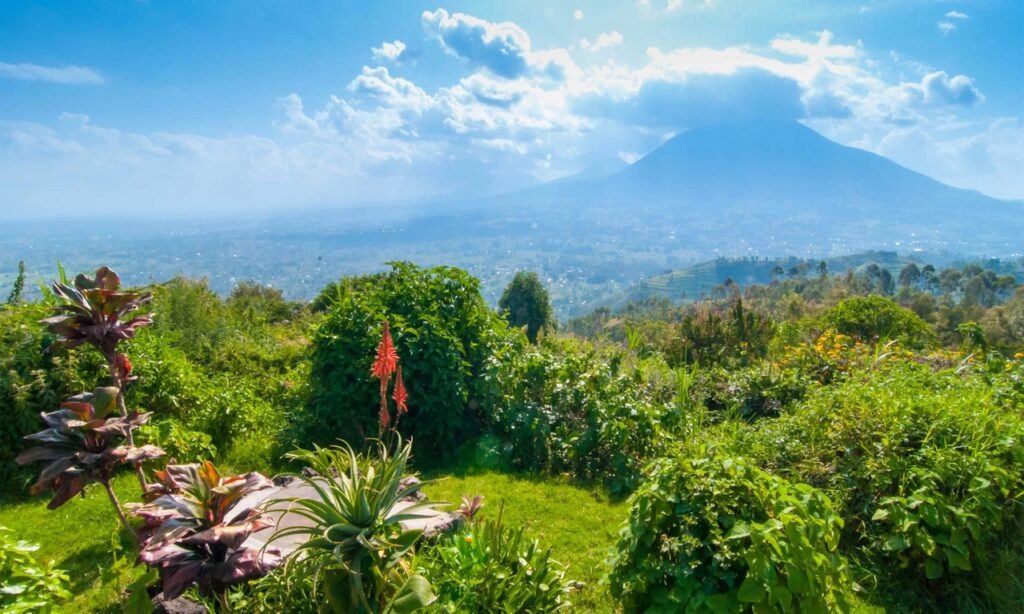
Which African countries have travel restrictions?
Algeria: All international flights to and from Algeria are suspended. All land borders are now closed and ferry services are suspended.
Angola: All scheduled international flights to and from Angola are suspended.
Benin: Entry and exit at border crossings is limited to “extreme necessity”.
Botswana: All of Botswana’s borders are closed, except for residents and citizens. There are currently no commercial flights in to or out of Botswana.
Cameroon: Most international flights are suspended. Access across Cameroon’s land and sea borders is currently tightly restricted.
Chad: The Chadian authorities have closed airports to passenger flights. Commercial flights to Chad are expected to resume from 1 August. From 1 August, all international visitors will have to hand over their passport, quarantine at home for a week, taking a COVID-19 test on the seventh day. Passports will be returned when you show the COVID-19 test receipt.
Comoros: All international flights are suspended until further notice. Ports are closed to those from affected countries. Immigration restriction, enhanced screening and other measures have been introduced to prevent the spread of coronavirus.
Eritrea: Asmara International Airport is closed and all entry visas have been suspended.
Gabon: All borders are now closed and the Gabonese authorities have announced the suspension of all international flights until further notice.Visa applications from countries affected by COVID-19 have been suspended.
The Gambia: Airports are now closed to passenger flights.
Ghana: Flights to Ghana are suspended until 13 August 2020.
– This does not apply to humanitarian, medevac and repatriation flights.
– Passengers are subject to medical screening and quarantine.
– Airline crew are subject to quarantine until their next flight.
Guinea: Conakry Airport is closed until further notice and all borders are now closed.
Kenya: All international flights to and from Kenya have been suspended until at least 6 July. The suspension is expected to be lifted on 1 August. A negative COVID-19 test is required to enter Kenya. For more information regarding pre-departure COVID-19 testing requirements you should contact the Kenyan High Commission in London. Any person entering Kenya, including from the UK, must quarantine in a Government of Kenya-designated facility for a minimum of 14 days at their own expense.
Madagascar: Madagascar has suspended all international and domestic flights until further notice.
Malawi: Entry to Malawi is prohibited except for Malawian nationals and foreign nationals with valid residency visas for Malawi.
Mali: Commercial flights have been suspended.
Mauritania: Flights between Mauritania and all other countries were suspended.
Mauritius: There are currently no commercial flights from Mauritius to the UK. Mauritius is on the UK government’s quarantine exemption list.
Morocco: Starting 15 July, British Nationals living in Morocco, as well as their families, will be allowed to enter Morocco, but the borders will not be open for tourism.
Niger: All international passenger flights into and out of Niger have been suspended until at least 23 May.
Reunion: To enter the French Overseas Territories, you will need to complete a travel certificate. Reunion is on the UK Government’s quarantine exemption list.
Seychelles: The Seychelles have closed their borders to anyone from the UK or Europe. The Seychelles is on the UK government’s quarantine exemption list.
Sierra Leone: The government of Sierra Leone has announced that all flights scheduled to and from Freetown International Airport have been suspended and all land borders closed. International flights are expected to resume on 22 July.
South Africa: Lockdown restrictions restrict entry into South Africa, except for South African nationals and foreign nationals with valid residence permits. South African airspace is closed to commercial airlines as part of efforts to contain the spread of COVID-19. Land Borders to neighbouring countries are closed except for essential trade.
Sudan: The Sudanese authorities have closed all external borders. A restricted number of flights are now permitted from regional countries.
Namibia: A state of emergency was declared on 17 March, which includes prohibiting entry to Namibia by all foreign nationals if they have come from countries affected by coronavirus, including the United Kingdom.
Nigeria: All airports in Nigeria are closed to all international commercial flights until at least 4 June.
Sao Tome and Principe: Entry for all foreign visitors is prohibited.
St Helena: All non-essential travel to St Helena has been suspended only allowing for residents, technical corporation officers, persons travelling to Ascension and persons authorised in advance by the Governor to return and depart the island. With immediate effect, the island has also restricted all cruise ship visits to St Helena. The decision will be reviewed after three months. St Helena is urging all in the travel community to not cancel, but to modify trips. From 24 July, St Helena, Ascension and Tristan da Cunha is exempt from the FCO advice against all non-essential international travel.
Uganda: All international passenger flights to and from Uganda have been suspended.
Which African countries are open to visitors?
Cote d’Ivoire: International flights to Cote d’Ivoire have resumed. You need to complete this form before arriving. Temperatures will be checked on arrival. You will be advised to self-isolate in your own accommodation for 14 days on arrival.
Djibouti: Djiboutian air, sea and land borders have reopened. On arrival at all entry points (land, air or sea), if you are older than 11 years, you will be tested for COVID-19 and will have to remain at the point of entry until you receive the test results (estimated waiting up to four hours). You should not eat anything 30 minutes before your arrival at the entry point. If your result is negative, you will be free to go to your accommodation. If the result is positive you will be taken to a government designated quarantine hotel or hospital.
Egypt: Egypt has reopened to tourists. Passengers arriving from all countries will have temperatures observed and will be required to complete a monitoring card with personal details and will need to provide confirmation of valid health insurance policy to airport authorities.
Ethiopia: The land borders are closed and the airports have strict measures in place. All passengers arriving into the country are subject to mandatory self-isolation. Passengers carrying a negative PCR Covid-19 test certificate dated within the previous 120 hours (5 days) are required to self-isolate at home for 14 days. Only PCR tests will be accepted. You will be tested again upon arrival. You may need to demonstrate you have such a test certificate before boarding your flight.
Liberia: Robert International Airport has reopened to commercial flights. Those arriving in Liberia will be checked for COVID-19 on arrival and will need to wash their hands in soap and water. If you have any coronavirus symptoms, you will be taken to a quarantine facility. You are strongly advised to get a COVID-19 test before arriving in Liberia and present your test result at the border. If you do not have a test before flying, you will need to have a Rapid Test on arrival.
Mozambique: There are currently limited flights to and from Maputo, but you are strongly advised to check with your airline of travel agent before travelling. Those entering Mozambique need to quarantine for 14 days. Be aware that Mozambique has suspended the issuing of some entry visas.
Tanzania: Tanzania has resumed international flights. You will no longer have to go into mandatory quarantine (unless you have symptoms). Enhanced screening is still in place.
Tunisia: Tunisia has classified the UK as a green’ country, meaning UK travellers can visit Tunisia, without having to face any coronavirus-related entry requirements.
Rwanda: Rwanda is now open. You will need proof of a negative test that’s been taken within 72 hours prior to your arrival. You will also need to take a second test before visiting the country’s attractions.
Senegal: The government of Senegal has said airlines are not allowed to carry foreign nationals from countries who have advised against travel to Senegal. British travellers are not subject to this restriction. Despite this, some airlines are only allowing foreign nationals with proof of residency in Senegal to travel. You should check with your airline before travelling. To enter Senegal, you must provide a negative test dated no older than seven issued in the country where you started your trip and authorised by that country or a recognised health organisation. If this is not possible, you will need to declare that you have no symptoms and accept having a test done on arrival.
Zambia: Zambia’s borders are open but under tight screening. All tourist visas to Zambia have been cancelled. Travellers to Zambia will be tested with a nasal swab for COVID-19 on arrival. Anyone who goes to Zambia will have to go into mandatory quarantine for 14 days at a government-run facility. You cannot leave the country until you have completed the 14-day quarantine period. All tourist visas to Zambia have been cancelled. Kenneth Kaund International Airport is open to international flights but all other provincial airports remain closed to international traffic.
South Pacific
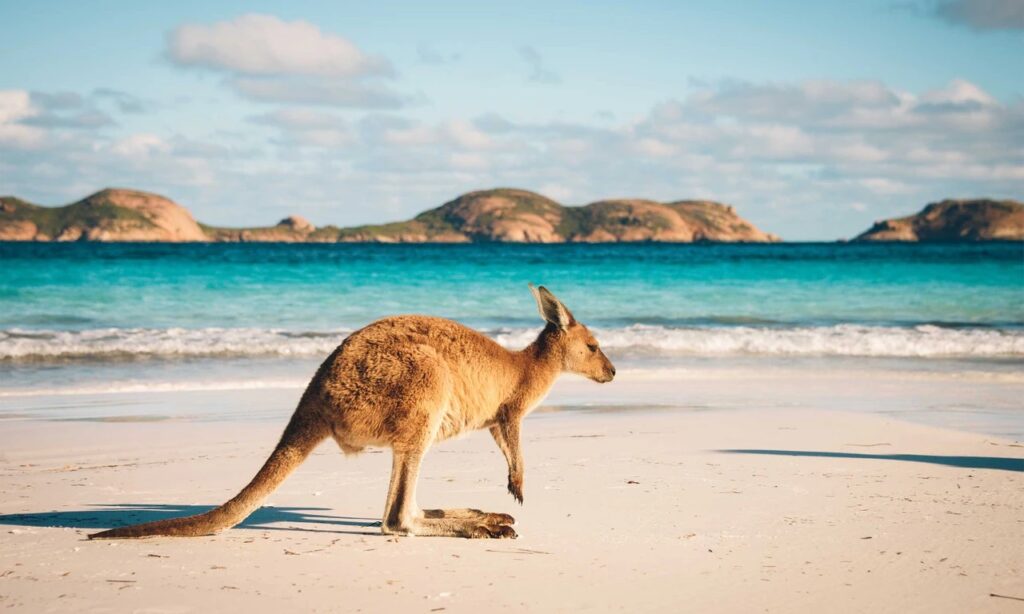
Which South Pacific countries can you not travel to?
New Zealand: The New Zealand border is currently closed to almost all travellers. New Zealand is on the UK government’s quarantine exemption list.
Australia: Only Australian citizens and returning permanent residents and their immediate family members are permitted to enter Australia without an exemption until further notice. Australia is on the UK Government’s quarantine exemption list, meaning those currently in Australia can come to England without having to quarantine on arrival. The Cook Islands is exempt from the FCO advice against all non-essential international travel.
Fiji: Fiji’s border is closed to all non-Fijian citizens. Fiji is on the UK government’s quarantine exemption list, meaning those currently in Fiji can travel to England and will not need to self-isolate on arrival.
Kiribati The island will now deny entry to any travellers who have been in or transited countries with confirmed local transmission within 14 days.
Nauru: The island is asking everyone to cancel or postpone non-essential travel to Nauru.
Papua New Guinea: Nobody may enter Papua New Guinea unless they have a written exemption from the Controller and have tested negative for COVID-19 within a 7 day period prior to arrival.
Tonga: Tongan borders are closed to entry by all foreigners.
Which countries have their borders open?
French Polynesia: French Polynesia has opened its borders to foreign travellers. You must complete a travel certificate to enter, as well as having proof of a medical certificate and will gave a health check at the border. French Polynesia is on the UK government’s quarantine exemption list.
The Caribbean
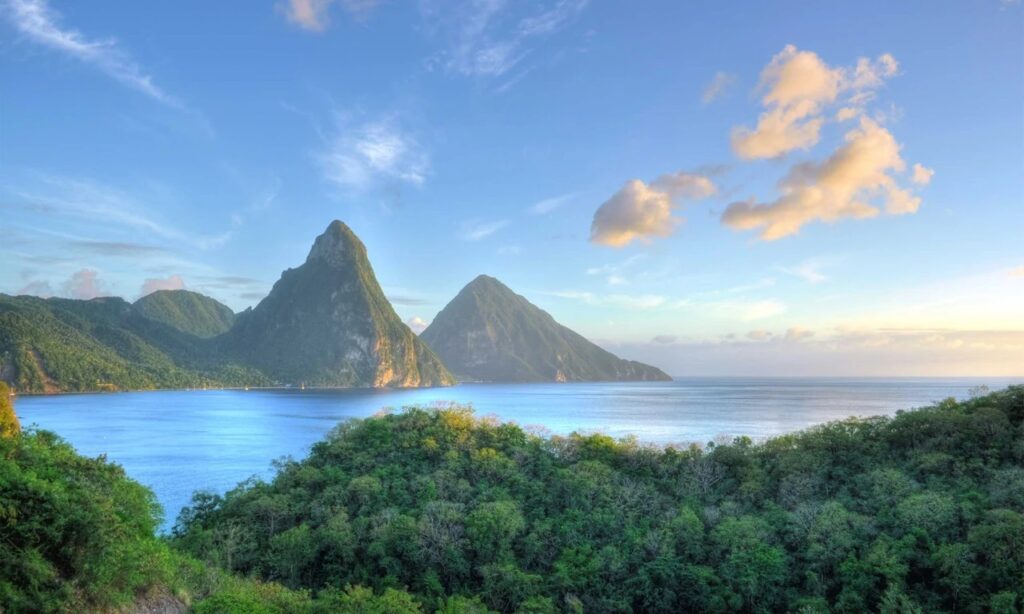
Which Caribbean countries have travel restrictions?
Anguilla: The island’s airports and sea ports are closed.
Dominica: All airports and seaports are closed. Dominica is on the UK government’s quarantine exemption list, meaning those currently in Dominica can travel to England and will not need to quarantine on arrival.
Dominican Republic: All of the Dominican Republic’s air, land and sea borders closed. The Dominican Republic will be opening its borders to visitors from 1 July.
Grenada: Maurice Bishop International Airport will be open to UK tourists from 1 August. All travellers will need to comply with new health protocols. Grenada is on the UK government’s quarantine exemption list.
Haiti: All ports, airports, and borders would be closed.
Saint Vincent and the Grenadines: All international flights have been suspended until further notice. The seaports of Bequia, Mustique, Canouan and Union Island have also been closed to yachts and pleasure craft. St Vincent and the Grenadines is exempt from the FCO advice against all non-essential international travel. St Vincent is on the UK government’s quarantine exemption list.
Trinidad and Tobago: The Trinidad and Tobago government has indefinitely closed its borders. Trinidad and Tobago is on the UK government’s quarantine exemption list. Trinidad and Tobago are exempt from the FCO advice against all non-essential international travel.
St Kitts and Nevis: Currently the borders of St Kitts and Nevis are closed to all arriving passengers. Access is not available either through the sea port or the airport either to nationals, residents or non-nationals. St Kitts and Nevis is on the UK government’s quarantine exemption list.
Which Caribbean countries are open to visitors?
Antigua and Barbuda: Antigua and Barbuda has reopened its borders and is welcoming tourists. All arriving passengers must take a mask with them and wear it in public areas while in the country. You must complete a health declaration form. Screening is in place. You will be subject to a coronavirus test on arrival and must pay $100 for it. Antigua is on the UK Government’s quarantine exemption list.
Aruba: Aruba is on the UK Government’s quarantine exemption list.
Bahamas: Flights are severely restricted with only a limited number of both international and domestic flights available. There is currently no direct flight to the Bahamas from the UK, but British Airways are planning to resume flights from 1 September. The Bahamas is on the UK Government’s quarantine exemption list.
Barbados: All persons arriving in Barbados should be tested for COVID-19 at an accredited laboratory. You must take a COVID-19 PCR antigen test 72 hours in advance of your flight and submit an Embarkation/Disembarkation (ED) card 24 hours prior to travel. Barbados will lift most Covid-19 restrictions on 1 July, with British Airways flights to the island resuming on 18 July. Barbados is on the UK government’s quarantine exemption list.
Bonaire/St Eustatius/Saba: Bonaire has opened its borders to most countries, but UK travellers will not be able to visit until 1 August. Bonaire is on the UK government’s quarantine exemption list.
Guadeloupe: If you wish to travel to Guadelope, you will need to complete a travel certificate. You will also be subject to a health check upon arrival, which may result in a period of quarantine. Guadeloupe is on the UK government’s quarantine exemption list. From 24 July, Guadeloupe is exempt from the FCO advice against all non-essential international travel.
Jamaica: Jamaica is now open to tourists. COVIV-19 nasal swab tests will be carried out at the airport and all travellers must complete this form before their trip. Jamaica is on the UK Government’s quarantine exemption list.
St Barthélemy: The island has announced it is open to tourists. You will need to provide proof of a negative COVID-19 test that is no more than 3 days old. St Barthélemy ison the UK government’s quarantine exemption list. From 24 July, St Martin and St Barthélemy is exempt from the FCO advice against all non-essential international travel.
St Lucia: Those wishing to go to St Lucia need to complete a Pre-Arrival registration form before arriving. This will include the need for details of proof of a negative test and proof of a COVID-19 certified hotel booking. You will need a certificate showing a negative test. On arrival, expect temperature checks. On arrival, you will habe to quarantine for 14 days at a pre-approved home quarantine address, a government facility of a COVID-19 certified property. St Lucia is on the UK government’s quarantine exemption list.